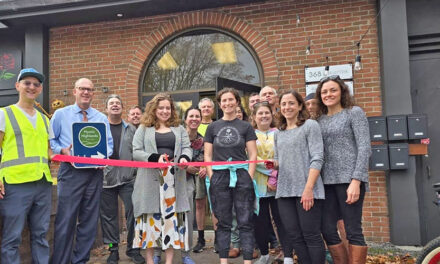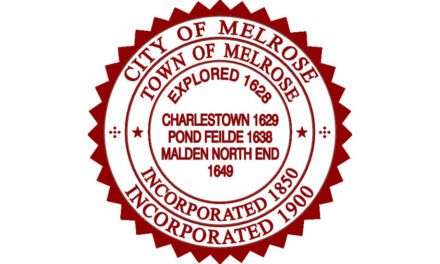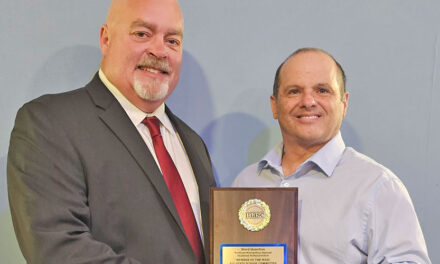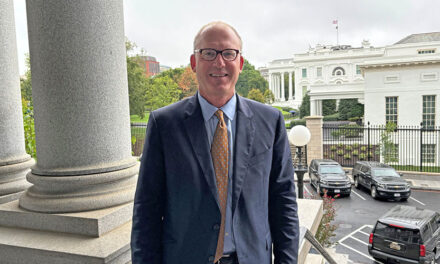By ROBERT KATZEN
Beacon Hill Roll Call
Note: Bob Katzen, editor of Beacon Hill Roll Call, has compiled summaries of the five ballot questions facing voters on November 5. The first three appeared last week. Here are the others.
QUESTION 4: Some legalization of natural psychedelic substances
This question asks voters if they approve of a proposed law that would allow persons aged 21 and older to grow, possess and use certain natural psychedelic substances in some circumstances. The psychedelic substances allowed would be two substances found in mushrooms (psilocybin and psilocyn) and three substances found in plants (dimethyltryptamine, mescaline and ibogaine). These substances could be purchased at an approved location for use under the supervision of a licensed facilitator. This proposed law would otherwise prohibit any retail sale of natural psychedelic substances and would also provide for the regulation and taxation of these psychedelic substances.
WHAT SUPPORTERS SAY: “We are incredibly optimistic about the campaign,” Emily Oneschuk, campaign director for “Yes on 4” told Beacon Hill Roll Call. “Every day, I’m talking to new people who are excited about a new mental health option after decades of the same treatments that don’t work for everyone.”
Oneschuk continued, “There are veterans, end-of-life care patients, people with treatment resistant depression and so many more who can’t get access to this therapy, who are still struggling and who still can’t find relief. This campaign is giving hope to a lot of people who have been left behind and forgotten by the mental healthcare system. Voters should vote yes to bring safe, regulated and effective care to those struggling in Massachusetts.”
WHAT OPPONENTS SAY: “This ballot question is poorly written and ill conceived,” Chris Keohane, spokesperson for “No on 4,” told Beacon Hill Roll Call. “Our opposition isn’t related to questioning the potential medicinal benefits of psilocybin. Our opposition comes from the contradictory language of the question itself and the dangers it opens up. Unlike the marijuana ballot question eight years ago, this one does not contain a community opt out provision. If it were to pass, all 351 cities and towns of Massachusetts would have to allow facilities in.”
Keohane continued, “Allowing 144 square feet of home growth is dangerous and certainly isn’t medicine. It is self-medication without a medical professional. To put it in perspective, this allows someone to grow psychedelics in an area equivalent to the average bedroom in Massachusetts. It also allows for distribution to friends and family. We firmly believe this would expand a gray market of distribution. While the proponents continue to make promises of hope for those in need, it is clear that their funding is coming from venture capitalists with a vested financial interest in psychedelics.”
OFFICIAL ARGUMENTS: Here are the official arguments, gathered by the secretary of state, for each side of the question:
IN FAVOR: Written by Mental Health Counselor Lt. Sarko Gergaria, https://maformentalhealth.org
“Vote yes on 4 to provide safe, regulated access to promising natural psychedelic medicines for treatment-resistant PTSD, anxiety and depression. Psychedelics will be available in approved therapeutic settings under the supervision of trained and licensed facilitators, not sold in stores to take home.
Research from leading medical institutions including Mass General Brigham, Dana Farber Cancer Institute and Johns Hopkins shows that psychedelic medicines can be effective treatments for depression and anxiety. In fact, the FDA recently granted psilocybin a breakthrough therapy designation.
For many people who are suffering, daily medications and other standard treatments aren’t working. Over 6,000 veterans die by suicide annually, and countless more struggle from service-related trauma. Natural psychedelic medicine can also offer patients with a terminal diagnosis relief from end-of-life anxiety and help them find peace.
That’s why Question 4 is supported by doctors, mental health providers and veteran advocates. Vote yes to expand mental health options.”
AGAINST: Written by Dr. Anahita Dua, Surgeon, Massachusetts General Hospital, www.SafeCommunitiesMA.com.
“Question 4 would decriminalize psychedelics, open for-profit centers, allow for growth in a 12-foot by 12-foot area in homes and distribution statewide. A black market is inevitable with this amount of home growth.
In recent years, driver’s license revocations for drugged driving rose 65 percent and fatal DUI crashes increased over 50 percent. With one in three frequent psychedelic users reporting driving under the influence of psychedelics in the past year, this will increase.
The psychedelic ibogaine has life-threatening cardiotoxicity. Heart failure can occur days after one dose. Accidental consumption of edibles is especially dangerous to children and pets. The centers aren’t required to be run by medical professionals, cannot provide critical care during adverse reactions and aren’t prohibited from giving psychedelics to high-risk patients like those with schizophrenia, bipolar illness and pregnant or breastfeeding women.”
QUESTION 5: Minimum wage for tipped workers
This proposed law would gradually increase, over the course of five years, the current $6.75 per hour minimum hourly wage an employer must pay a tipped worker, as follows: To 64 percent of the state minimum wage on January 1, 2025; 73 percent of the state minimum wage on January 1, 2026; 82 precent of the state minimum wage on January 1, 2027; 91 percent of the state minimum wage on January 1, 2028; and 100 percent of the state minimum wage on January 1, 2029.
WHAT SUPPORTERS SAY: “Our campaign for Question 5 is building broad support across Massachusetts because voters and workers alike know it’s time to raise the standard for all,” restaurant worker and organizer Grace McGovern told Beacon Hill Roll Call. “This measure is not only endorsed by key organizations and figures like MassVote, the Brazilian workers center, Hillary Clinton, Ayana Presley, Joe Kennedy III and local business leaders, but it’s also driven by the voices of the workers themselves. Thousands of tipped workers across the state have called for One Fair Wage because they know firsthand the challenges of surviving on subminimum wages and the economic instability it creates. A yes vote on Question 5 ensures all workers receive a full minimum wage with tips on top, providing financial security and a pathway to economic justice for over 113,000 tipped workers, 70 percent of whom are women and disproportionately people of color.
McGovern continued, “Question 5 is fundamentally about fairness. We’re addressing an outdated policy that leaves so many tipped workers in Massachusetts vulnerable to wage theft, harassment and income instability. Independent research and economic studies confirm that in states like California and New York, where One Fair Wage policies are in place, workers have higher earnings and businesses thrive. By passing Question 5, Massachusetts voters have an opportunity to create a stronger, more equitable economy where both workers and small businesses can succeed. It’s time to leave the subminimum wage behind and set a new standard for fair pay and respect.”
WHAT OPPONENTS SAY: “The more voters have learned about this ballot question, the more they have flocked to no,” Chris Keohane, spokesperson for “No on 5,” told Beacon Hill Roll Call. “This comes as no surprise because the very people they are supposedly trying to help overwhelmingly oppose it. That is why you have seen zero contributions from a Massachusetts server or bartender to the yes campaign. Over 90 percent of servers and bartenders polled say they will vote no on 5 because it will hurt their tips, their restaurants and their customers. Well over 1,000 restaurants have joined in their opposition by posting vote no messages and materials in their establishments and support for no is surging in the closing weeks with endorsements from Gov. Healey, dozens of elected officials, Chambers of Commerce and every single newspaper that has made an endorsement so far.”
Keohane continued, “Washington, D.C. implemented this policy late last year. In the first nine months, over 10 percent of tipped employees have either been laid off or left the industry due to lower take home pay and closures. If this proposal were to pass in Massachusetts, some bars and restaurants simply will not survive. Out-of-state activists are saying that there is a ‘sub-minimum wage’ here in Massachusetts. This is a lie. Every worker in Massachusetts is already guaranteed to earn at least the current minimum wage of $15 including tipped employees.”
OFFICIAL ARGUMENTS: Here are the official arguments, gathered by the secretary of state, for each side of the question.
IN FAVOR: Written by Estefania Galvis, of “Yes on 5,” www.yeson5ma.com
“Instead of being paid the current tipped worker wage of just $6.75 an hour, Massachusetts tipped workers deserve the full minimum wage with tips on top. Workers in seven other states earn a full wage plus tips, and they enjoy robust tips and growing restaurants where menu prices are comparable to Massachusetts. This law would create greater financial stability and predictability, acknowledging workers’ skills and professionalism.
Many Massachusetts small businesses are already paying the full minimum wage plus tips. Big restaurant corporations should do the same. This would reduce employee turnover and improve service quality.
Big restaurant corporations are not paying their fair share and are forcing consumers to cover their employees’ wages through tips. Tips should be a reward for good service, not a subsidy for low wages paid by large corporations.”
AGAINST: Written by Doug Bacon, former server and bartender and current restaurant owner, www.ProtectTips.org
“This question is funded by a radical group from California.
Tipped employees have made it abundantly clear the way they earn money does not need to be changed. State and Federal law guarantee them the $15 hourly minimum wage with many earning over $40 per hour and 90 percent reporting at least $20 per hour. A recent survey also showed that 88 percent oppose ‘tip pools’ where tips are shared with non-service employees and 90 percent believe that if tipped wages are eliminated, they will earn less.
Other attempts to implement this have seen catastrophic results. In Washington, D.C., nearly 10 percent of tipped employees have lost or left their jobs. This follows increases in menu prices, the implementation of 20 percent service fees and a wave of closures.
This would reduce overall wages for servers, increase costs for restaurants and skyrocket the cost of eating out. It will be disastrous with many neighborhood restaurants being forced to close.”




